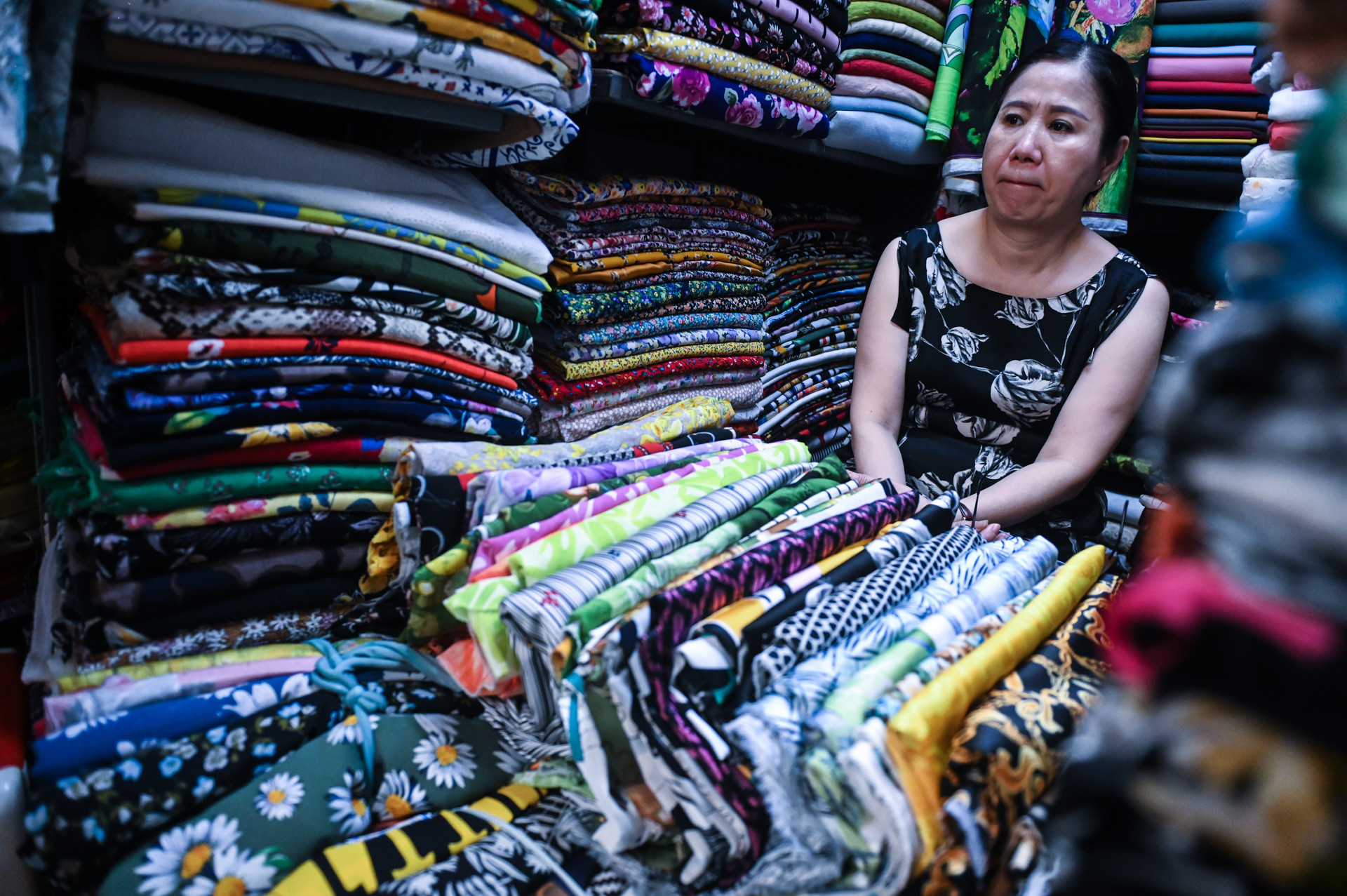The lives of hard work support each other
In my neighborhood, there is a small business couple who are considered by everyone to be models of hard work and progress. The husband finished secondary school, the wife finished high school, they left their hometown to come to my neighborhood, rented a house, opened a grocery store, and have been doing business for 10 years now.
On sunny days as well as rainy days, the husband regularly wakes up at 3am, goes to the suburbs to buy vegetables, and brings them into the city for his wife to sell; the rest of the time, both husband and wife are busy with the grocery store - which is just a small house they rent to sell to residents in the area.
They work extremely hard to raise two children in Hanoi , and also send money back to their parents in the countryside.
The other day, I went down to buy some things and saw both husband and wife looking sad. “The tax officer came to guide me to declare my taxes electronically, but I still don’t know how to do it. If I don’t declare it here, I will be accused of tax evasion. Tax evasion is a serious crime, brother.”
The tax story of this couple is also a common concern for millions of business households in Vietnam, from North to South, as reported by VietNamNet.

The household economic sector accounts for 30% of the country's GDP and is the last safety net, protecting the vast majority of people from unemployment and poverty. Illustration: Thach Thao
Another official, after retiring, opened a grocery store with his wife to make a living. They had worked for nearly 40 years in a ministry, were familiar with office work, understood the law, technology, and were even quite proficient in using AI.
In an email to me, this grocery store owner said: just over two weeks ago, when the tax officials came to request the application of new tax regulations from June 1, both husband and wife had to try very hard to be able to cope in time. That is, they quickly purchased equipment, software, then hired additional support staff - all had to be done urgently to meet the time.
“I don’t mean to praise myself, I just want to say that, with such conditions, we still have to struggle so much, I don’t know what percentage of other business owners can cope in such a short time. From my own experience, I clearly see the difficulties and deeply sympathize with those who are not as fortunate as me.”
“I fully support the policy of collecting the right amount of tax. But the problem is that many people want to comply with the law and pay their taxes, but they simply do not have the capacity to comply with the new requirements – especially when those requirements are implemented quickly and without any specific support.”
“I tried to count each house number in my neighborhood and estimated that about 70-80% of business owners are of the type that 'can't do it, can't do it', without real and effective support solutions from the government.”
Data on the largest sector of the economy is murky.
The current Law on Tax Administration still has specific regulations for business households, including lump-sum tax, but the regulations on accounting and tax reporting regimes applicable to business households are considered less strict.
Meanwhile, when registering or converting to a private enterprise, business start-ups or business households will lose this significant advantage. In addition, the provisions in the Enterprise Law as well as many other current legal documents also make compliance costs for the private enterprise model too much for individual businesses.
“Such different regulations make people prefer the form of household business rather than registering and converting into private enterprises according to the provisions of the Enterprise Law,” said Dr. Le Duy Binh of the Economica organization.
According to the 2023 Statistical Yearbook - the most updated statistical yearbook of the General Statistics Office (now the General Statistics Office), as of July 1, 2022, the whole country has nearly 5.2 million individual non- agricultural production and business establishments. According to this agency, the whole country has 12 million agricultural households.
However, according to the announcement of the Ministry of Finance, from June 1, about 37,000 business households and individuals paying taxes in the form of lump-sum tax, with revenue of 1 billion VND/year or more, must apply electronic invoices generated from cash registers connected to tax authorities; and from January 1, 2026, about 2 million business households paying lump-sum tax will switch to tax declaration.
Meanwhile, according to the Government's Socio-Economic Report for the first 5 months of the year, from June 1, when it was mandatory to use electronic invoices generated from cash registers, by June 4, 121,385 businesses had registered to use them, reaching 67.1% of the establishments required to implement them.
The above data shows a huge discrepancy: the number of 37,000 business households is far less than the number of 121,385 business households that have applied electronic invoices since June 1, 2025; the number of 2 million business households paying lump-sum tax is also far less than the number of 5.2 million non-agricultural business households.
Even the Statistical Yearbook, although it lists 5.2 million non-agricultural business households, does not clearly classify which households are registered for business and tax and which are not.
However, according to Dr. Le Duy Binh, in reality, there are many business households that do not register for business but register for tax; there are business households that register for both business and tax; there are households that register for business but do not register for tax because they existed before the regulations were issued; there are households with large revenue but do not register; there are households that do not register because they are not required to register (due to low revenue).
The messy land of Vietnam
I cite the above figures to show that the policy of eliminating lump-sum tax and replacing it with electronic invoices, although correct and contributing to publicity, transparency, and "collecting correctly and fully", has not yet fully measured how many business households will be affected, and what the negative side of this policy is.
Not to mention the fact that people, especially business owners in remote areas, the elderly, etc., are not yet prepared in terms of skills and technological equipment for this transformation.
The household economic sector accounts for 30% of the country's GDP and is the last safety net, protecting the vast majority of people from unemployment and poverty.
Here is an excerpt from the concluding letter of a sole proprietor – a former official who contributed greatly to the country's opening process:
“My mother was a business owner when she was alive, and she still ran the business very lucidly until the day she passed away, at the age of 90. But if we were to force her to meet the new standards now, the only way she would have to do is to stop running the business – if she didn’t want to break the law.”
Finally, he wrote: “I always support the 'big battles', the billion-dollar projects to boost the economy. But don't forget that the famous Dien Bien Phu campaign of the past could not have succeeded without the 'clunky' carts carrying each bag of rice to the battlefield. Just like the 500kV power line - a symbol of industrialization - not only needs cables, steel poles and concrete pillars, but also bowls of rice at cheap restaurants, cups of guava juice from roadside stalls to fuel the cadres and workers who work day and night to build and install. Life is like that. The economy is like that too. There are millions of people doing small business to make a living. And that is the life and economy of Vietnam.”
Yes, “the land of Vietnam’s practice” is worth thinking about. The path to applying electronic tax to achieve civilization, openness and transparency is not simple, because if applied immediately, many people will be at risk of being left behind.
Next: Applying electronic tax - will the revenue cover the expenses?
Vietnamnet.vn
Source: https://vietnamnet.vn/hoa-don-dien-tu-con-duong-chong-gai-den-minh-bach-2408974.html













































































































Comment (0)